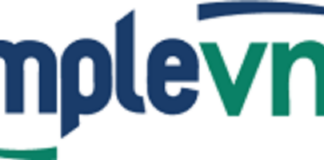
By Frank Mengert, founder and CEO of ebm
Searching for the ideal candidate can be like seeking a needle in a haystack, sifting through countless resumes to find the perfect blend of skill and compatibility within your recruitment budget.
Here’s where employee referrals become invaluable. These programs engage existing employees in hiring, expanding your candidate pool with high-quality prospects.
By utilizing your staff’s connections, you can enhance your recruitment strategy, boosting the chances of hiring top-notch talent and propelling your organization forward.
Advantages of employee referrals
Employee referral programs offer a plethora of benefits and are one of the most successful methods for sourcing new hires. Here are a few advantages of incorporating employee referrals into your hiring process.
Better quality applicants
One of the most significant benefits of employee referral programs is the improved quality of applicants. When current employees recommend individuals from their professional network, they will likely suggest candidates they believe will fit well within the company culture and excel in their roles. These referrals often result in candidates with a higher skill level and suitability for the position.
Streamlining the hiring process
Employee referrals offer a powerful way to streamline the hiring process. Instead of sifting through countless applications, recruiters can concentrate on a smaller, highly targeted pool of candidates their employees recommended. This saves valuable time and ensures a more efficient and effective selection process.
Reduced recruitment expenses
Employee referrals can lead to significant cost savings in recruitment. Advertising job openings, conducting initial screenings, and investing in interviews can add up. However, when you leverage your existing workforce to find potential hires, many of these costs can be reduced or even eliminated. Moreover, referred candidates tend to stay longer with the company, reducing turnover rates and the associated expenses of hiring new staff.
How to craft an effective employee referral program
Creating a successful employee referral program isn’t merely asking employees to bring in referrals. Instead, it involves creating a strategic and well-thought-out system that encourages participation, rewards effort, and ultimately benefits both the employees and the organization. Here’s how you can craft an effective employee referral program:
Effective communication
Effective employee communication is at the core of a successful employee referral program. It starts with clearly conveying the program’s purpose, process, and benefits to all employees. It is crucial to ensure that employees grasp why the company is implementing this program, how it contributes to the overall growth and success of the organization, and what they stand to gain from it.
Regularly remind employees of their critical role in attracting top talent and how their unique perspectives and networks can provide valuable leads. To disseminate this information effectively, use various communication channels, such as emails, team meetings, internal newsletters, and company-wide gatherings. The key is ensuring every employee understands and feels a part of this initiative.
Encouraging referrals
Consider offering incentives to your employees to encourage active participation in the referral program. These could be monetary rewards, extra vacation days, recognition at company events, or any other employee benefits that align with your company culture and values.
The key is to entice the reward to motivate employees to participate actively. Also, consider offering tiered rewards for multiple successful referrals to further encourage ongoing participation.
For instance, an employee who successfully refers one candidate might receive a certain reward, but if they refer three successful candidates, they might receive a higher-tier reward. This can create a sense of friendly competition and ongoing engagement in the program.
Make the referral process easier for employees
The referral process should be streamlined, intuitive, and hassle-free. Any complexity, burden, or time consumption may discourage employees from participating, regardless of the attractiveness of the rewards.
Consider using a streamlined online system where employees can easily submit referrals, track their progress, and see potential rewards. Provide clear instructions on how to use the system and offer assistance if needed. You could also consider hosting a brief training session or workshop to walk employees through the process.
Offer consistent feedback and timely updates
Transparency is crucial in maintaining engagement in your referral program. Keep employees updated on the status of their referrals, whether they’ve been successful or not. Feedback not only gives closure to the referring employee but can also help improve the quality of future referrals.
For example, if a referral didn’t work out, let the employee know why in a constructive manner. This can help them better understand the type of candidates the company seeks and adjust their referral efforts accordingly. Regular updates and feedback foster a sense of transparency and trust, which can boost participation levels and the program’s overall success.
Elevate your talent acquisition efforts with referrals
Utilizing HR technology, referral programs offer an effective avenue to access premium talent that traditional job boards and recruitment methods might miss. They can help you acquire the best candidates in less time while strengthening existing relationships with employees.
Remember these tips to ensure your referral program is as successful as possible. With the right incentives and employee engagement strategies, you can significantly reduce your recruiting costs while acquiring the best talent available.
 Frank Mengert continues to find success by spotting opportunities where others see nothing. As the founder and CEO of ebm, a leading provider of employee benefits solutions. Frank has built the business by bridging the gap between insurance and technology driven solutions for brokers, consultants, carriers, and employers nationwide.
Frank Mengert continues to find success by spotting opportunities where others see nothing. As the founder and CEO of ebm, a leading provider of employee benefits solutions. Frank has built the business by bridging the gap between insurance and technology driven solutions for brokers, consultants, carriers, and employers nationwide.





